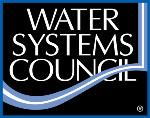
Water Supply Cost Savings Act Reintroduced in 114th Congress

The Water Supply Cost Savings Act, H.R. 1160, a bill to reduce federal, state and local costs of providing high quality drinking water to millions of Americans in rural communities by facilitating greater use of cost-effective alternatives like water well systems, has been reintroduced in the 114th Congress by Representative Marlin Stutzman (R-IN).
“The Savings Act is a simple, common sense bill that can save taxpayer dollars and, importantly, help rural communities gain access to much needed high quality drinking water,” Rep. Stutzman said.
According to the Environmental Protection Agency’s 2011 Drinking Water Needs Survey, the shortfall in drinking water infrastructure funding for small communities of less than 3,300 residents is more than $64 billion. The Savings Act will help close the funding gap by providing rural communities with the knowledge and resources necessary to utilize alternative drinking water systems, including individual and community water well systems.
If passed, the bill will create a Drinking Water Technology Clearinghouse under the EPA and the Department of Agriculture to create and disseminate information on the cost effectiveness of alternative drinking water delivery systems to rural communities seeking federal funding for drinking water systems for 500 or fewer people.
The Savings Act is supported by leading organizations within the drinking water community, including the Water Systems Council, the Water Quality Association and the National Groundwater Association.
“The Savings Act will provide critical information on how small communities can meet critical water needs cost effectively while supporting American manufacturing and jobs,” said Steve Anderson, president of the Water Systems Council. “The efficacy of water wells as a reliable, low-cost way to provide access to safe drinking water has been proven by projects already completed through the Water Well Trust that have realized costs savings of as much as 94% over conventional, long-pipe drinking water systems.”
Currently, H.R. 1160 has been referred to the House Energy and Commerce Committee and House Agriculture Committee for further review and action.
 Water Systems Council
Water Systems Council